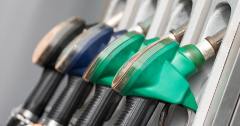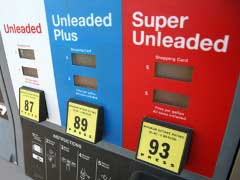How to Choose the Best Gasoline Octane for Your Car - Vol.36
Whenever you've gone to a gas station in the past, you've probably noticed the different grades you can choose from. These are usually numbers like 87, 89, etc. These numbers indicate what level of octane, or fuel grade, that you can purchase. Depending on the type of vehicle you're driving, the best gasoline octane for your car will vary. You might have an older vehicle, in which case that will play a factor in your fuel choice, for example.
The octane rating actually refers to how gas is ignited within the car. Higher octanes may be ignited and used differently for fueling your engine, but they won't necessarily be better quality gas or put less wear and tear on your engine. The type of octane you select has to do with the make of your car as well as the type of engine you have. Different types of materials are used to make each type of fuel grade, so it is important to know how these things influence the mileage you get for your car's use of gas. It might be a lot different than you originally thought.

First of all, you can look in your car owner's manual to find what the recommended octane is for your vehicle. In older cars, a premium octane might be recommended because of how older engines work. Newer engines are designed to run with the most basic octane, but older ones may function better with premium octane. Usually there is no benefit to using higher fuel octanes unless your engine is knocking. If you have doubt about what type of octane to use or think there may be something wrong with your engine, you can always consult a mechanic or your vehicle manufacturer.
A second consideration when deciding whether or not to use higher grades of fuel for your car is gas mileage. Sometimes you may get cheaper and better mileage with lower octanes, such as the regular grade of gasoline. However, it might sometimes actually give you better mileage for your vehicle if instead you use a higher fuel grade. This mostly depends on the type of vehicle you have and how its engine is constructed. For most newer cars, regular fuel will still do fine, but sometimes SUVs and minivans work better with premium fuel instead.
Thirdly, it is important to dispel the myth that "premium" fuel somehow equates to "better" fuel. Premium is simply another type of fuel that is more expensive and created differently, but it is not necessarily better. In actuality, for most cars, premium fuel only needs to be used when the engine is indeed knocking. A knocking engine indicates a problem and should be seen to immediately to avoid damage to the vehicle in the long run.

These three factors are the main things to think about when you are trying to determine how to choose the best gasoline octane for your car. Ultimately it is dependent on the make and model of your vehicle and what is recommended in the owner's manual. This is the first place to check. Beyond that, you should consider what will give you the best gas mileage while also putting the least amount of wear and tear on your engine. Also remember that premium fuel and higher octane ratings are not necessarily better and that you may be paying more for gas than you need to. Consult with a professional or the vehicle manufacturer if you are not sure about what type of gas octane will give you the best bang for your buck - or at least, gas for your mileage.